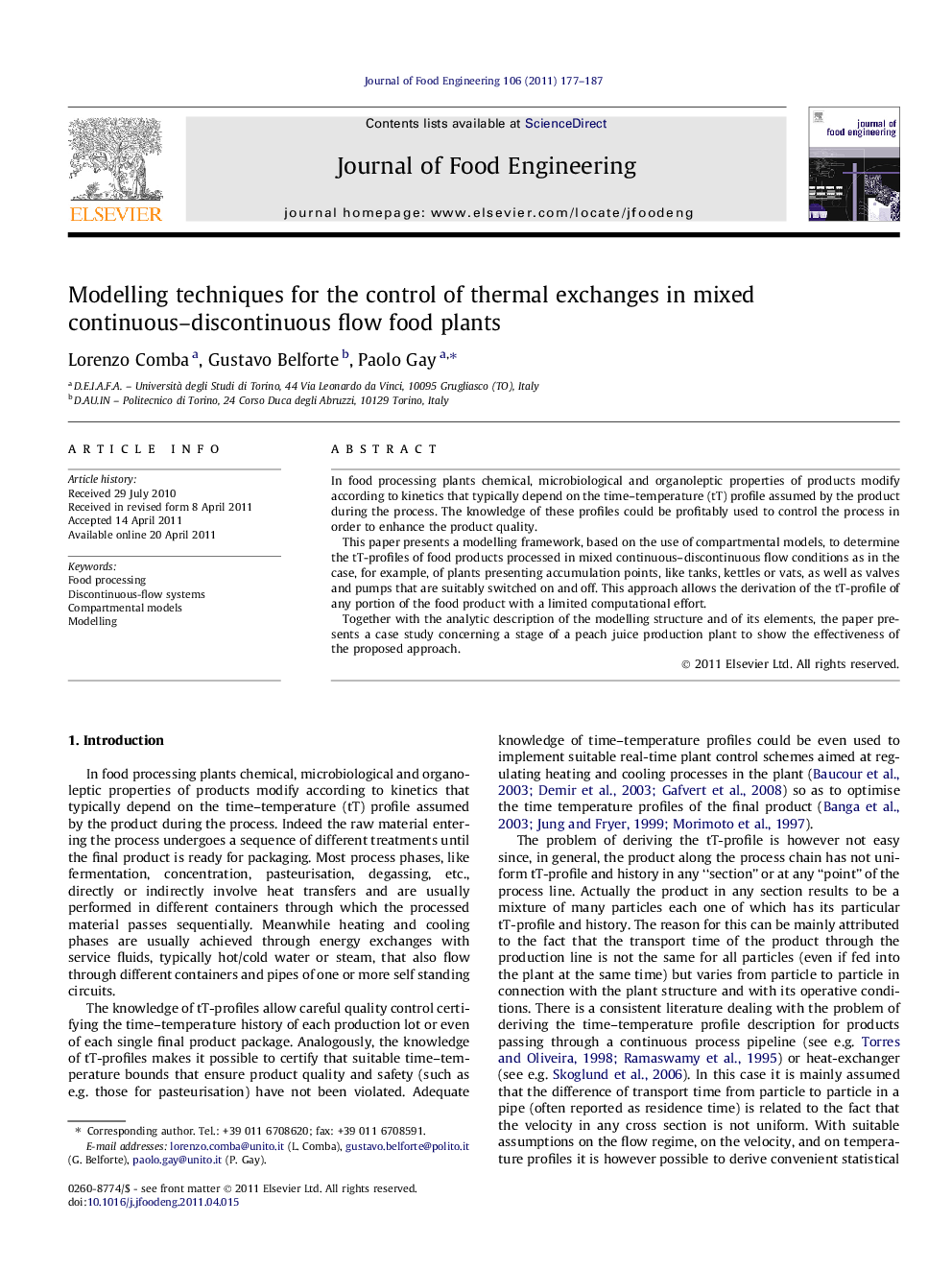| Article ID | Journal | Published Year | Pages | File Type |
|---|---|---|---|---|
| 223441 | Journal of Food Engineering | 2011 | 11 Pages |
In food processing plants chemical, microbiological and organoleptic properties of products modify according to kinetics that typically depend on the time–temperature (tT) profile assumed by the product during the process. The knowledge of these profiles could be profitably used to control the process in order to enhance the product quality.This paper presents a modelling framework, based on the use of compartmental models, to determine the tT-profiles of food products processed in mixed continuous–discontinuous flow conditions as in the case, for example, of plants presenting accumulation points, like tanks, kettles or vats, as well as valves and pumps that are suitably switched on and off. This approach allows the derivation of the tT-profile of any portion of the food product with a limited computational effort.Together with the analytic description of the modelling structure and of its elements, the paper presents a case study concerning a stage of a peach juice production plant to show the effectiveness of the proposed approach.
► The introduced modelling framework allows determining the time-temperature (tT) profiles of food products processed in mixed continuous- discontinuous flow conditions. ► This approach is suited for plants with accumulation points, such as tanks, kettles or vats, as well as valves and pumps that are suitably switched on and off during the process. ► The proposed methodology is based on three different concurrent compartmental models for the joined description of energy and mass transfers in food processing plants. ► The new theoretical result presented in this paper relies on the ideal portioning (and tracking) of the processed food into ’’cohorts’’ of product which share the same tT history.
